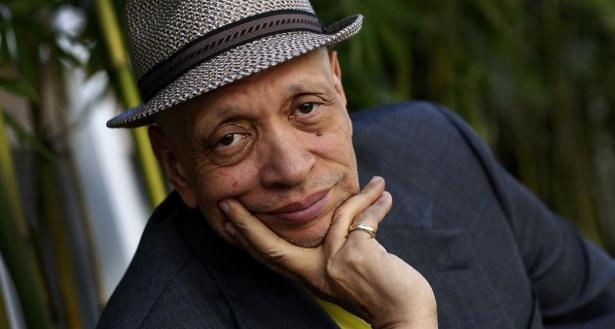I am deeply grateful to receive The Medal for Distinguished Contribution to American Letters. Just to start it out I’d like to thank a few important people:
John Edgar Wideman, Ishmael Reed, Charles Johnson, David Bradley, Ed Bullins, Samuel R Delany, Cornelius Eady, Percival Everett, Yusef Komunyakaa, Haki Madhubuti, Nathan McCall, Michael Harper, E Ethelbert Miller, Ralph Ellison, Randall Kenan, Amiri Baraka, Sterling Plumpp, Kalamu ya Salaam, Iceberg Slim, Stanley Crouch, Quincy Troupe, Neil deGrasse Tyson, Frank X Walker…
These are just a few names among my peers who are either alive now or have lived at some point during this medal’s existence. Without them and so many others I could not be here today. But more about that later.
It’s a great honor to be given this recognition for my work. It has been more than thirty years since I embarked on the path that writing conjures out of almost nothing, a path wrought in the mind, a mind that is too small to contain the full scope of a project that is endless and has within it, like language itself, the full experience of our species.
I love writing: its slippery slopes and foolish errands, its silly puns and bone-shaking metaphors, its ability to offer over the millennia the deep well of human invention in defiance of despots, wars, poverty, and ever-encroaching techno-babble. Stories can be transmitted via fiber-optics but they have yet to be usurped by that or any other medium. Stories keep their deep connection to the human heart word by word, sentence by sentence.
We, my fellow writers and I and our readers, talk about love and solitude, dreaming and reality, and truths that might not ever be uttered except by the word in the book that we write, read, and interpret. We writers speak to our readers, but at the same time they rework our stories, applying them to their own unique experiences. In this way writing is political and democratic in the extreme. We are free in our minds to say, to imagine, to conjure anything.
Anything at all.
This, I suppose, brings me back to the beginning. There’s a great weight hanging over the reception of an award when the underlying subject is, the first Black man to receive… We the people who are darker than blue, we have been here, on this continent, in this storm for 400 years. As a matter of course we have been chained, beaten, raped, murdered, robbed of our names, our history and often even of our dignity. This has been an ongoing process, an unending anguish.
And so one might be cowed by the monumental negative space surrounding that pinprick of light that this award represents. One might ask can such a thing make a difference?
Is this a dying gasp or a first breath? Is today different from any other day over the past 400 years? I prefer to believe that we are on the threshold of a new day, that this evening is but one of ten thousand steps being taken to recognize the potential of this nation. We, the people who are darker than blue, built this nation brick by brick. We crafted its jazz and bled for its yet to be realized beliefs. These achievements cannot be ignored. We’ve been here from the beginning and we’ll be there at the end, our heads held high when the promise of equality is achieved.
Thank you for giving me the recognition for what has gone before and the chance to utter a few of the truths that we all strive for.
[Walter Mosley is the author of more than 43 critically acclaimed books, including the major bestselling mystery series featuring Easy Rawlins. His work has been translated into 23 languages and includes literary fiction, science fiction, political monographs, and a young adult novel. His short fiction has been widely published, and his nonfiction has appeared in The New York Times Magazine and The Nation, among other publications. He is the winner of numerous awards, including an O. Henry Award, a Grammy and PEN America’s Lifetime Achievement Award. He lives in New York City.]


Spread the word